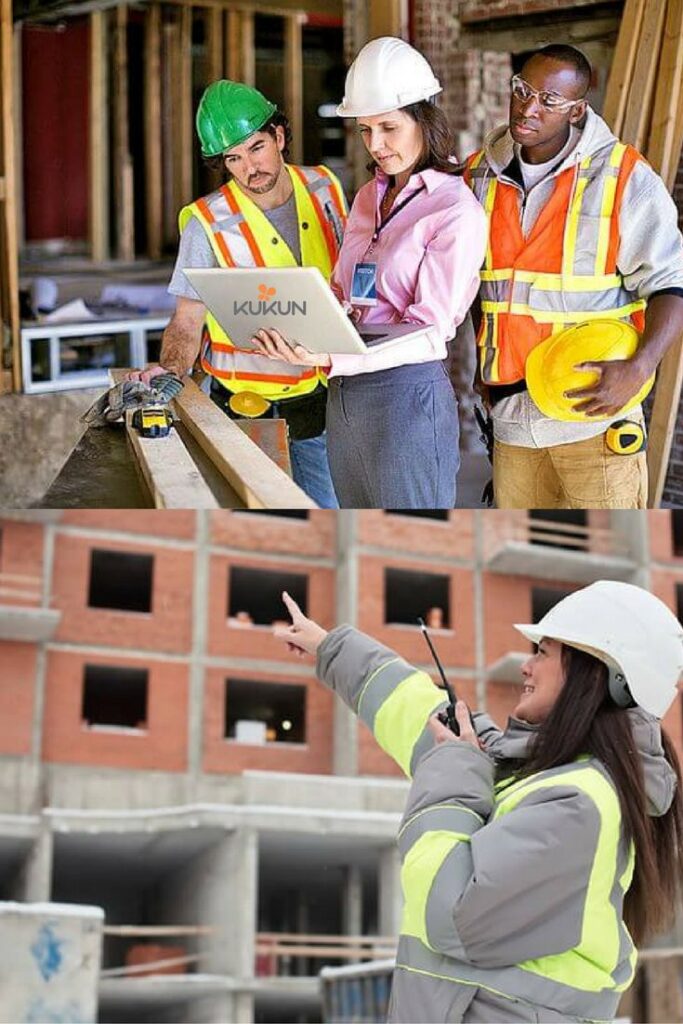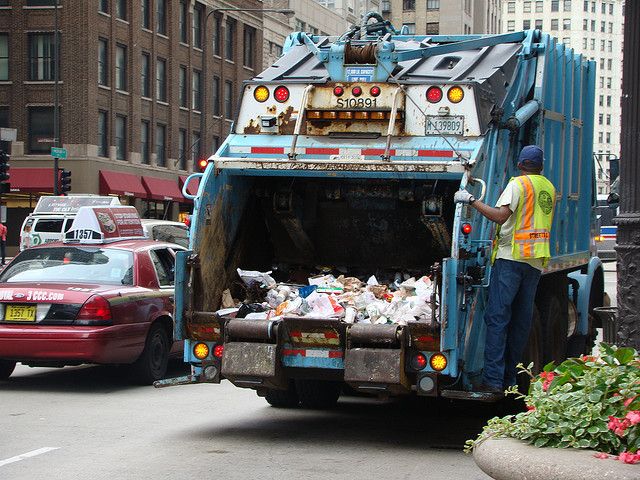In Canada, obtaining a degree is often seen as a prerequisite for securing a high-paying job. However, there are certain fields where experience and skills hold more weight than a degree. In fact, there are several high-paying jobs in Canada that do not require a degree at all. These jobs include positions such as electricians, plumbers, welders etc. In addition, certain roles in the tech industry, such as software developers and IT professionals, may not require a degree as long as the candidate has the necessary skills and experience. Below are some high-paying jobs that do not require a degree:
1. Electricians
Electricians are skilled professionals who work with electrical systems in various settings, such as residential, commercial, and industrial buildings. Their expertise is in high demand, and they can earn competitive salaries based on their experience and specialization. Electricians earn an average rate of salary ranging from $40,000 – $92,000 per year. There are employers that believe in skills and experience over a degree in the university.

Roles of an Electrician
- Installation: Electricians are responsible for installing electrical systems, including wiring, circuit breakers, outlets, switches, and lighting fixtures. They follow electrical codes and blueprints to ensure proper installation and safety.
- Maintenance and Repair: They troubleshoot and repair faulty wiring, electrical equipment, and fixtures to ensure the safe and efficient operation of electrical systems.
- Upgrades and Renovations: Electricians may be involved in upgrading or renovating electrical systems in existing buildings.
- Safety Compliance: Electricians must adhere to safety regulations and guidelines to prevent accidents and ensure the safety of occupants. They use specialized tools and equipment to test electrical systems, identify potential risks, and implement necessary safety measures.
- Collaboration: Electricians often work closely with other professionals, such as architects, contractors, and engineers, to ensure that electrical systems are integrated properly into building plans and meet the specific requirements of the project.
- Continuous Learning: Electricians must stay updated with the latest industry standards, technology advancements, and safety regulations. They may attend training programs, workshops, and seminars to enhance their knowledge and skills.
2. Welders
A welder is a skilled tradesperson who uses heat and electricity to join metal parts together. Welders work in a variety of industries, including repair and maintenance, manufacturing, and construction. Welder as one of the high paying jobs are in high demand with opportunities available in both urban and rural areas, across various industries, including construction, manufacturing, energy, and transportation. Welders may find employment with construction companies, manufacturing firms, engineering companies, and maintenance departments in various industries but only few companies in Canada accept welders without a degree. Average salary ranges from $38,000 – $75,000 per year.

Roles of a welders
- Preparation: Before welding, welders must prepare the metal parts to be joined. This may include cutting, grinding, and cleaning the metal to remove any dirt, rust, or other impurities that could affect the quality of the weld.
- Welding: Once the metal parts are prepared, welders use a variety of processes to join them together. This may include arc welding, gas welding, or resistance welding, depending on the specific materials and requirements of the job.
- Inspection: After welding, welders must inspect the weld to ensure that it meets quality standards and is free from defects. They may use specialized tools and equipment to test the strength, durability, and integrity of the weld.
- Repair: If a weld is defective or fails to meet quality standards, welders may need to repair it by cutting out the faulty portion and re-welding it.
- Safety: Welders must follow safety regulations and guidelines to prevent accidents and ensure the safety of themselves and others. They use protective equipment, such as helmets, gloves, and safety glasses, to protect themselves from heat, sparks, and other hazards.
- Collaboration: Welders often work closely with other professionals, such as engineers, designers, and fabricators, to ensure that the welded components meet the specific requirements of the project.
- Continuous Learning: They must stay up to date with the latest industry standards, technology advancements, and safety regulations. They may attend training programs, workshops, and seminars to enhance their knowledge and skills.
3. Plumber
Plumber is one of the high paying jobs in Canada that may not require a university degree but skills and experiences. Plumbers are skilled tradespeople responsible for installing, maintaining, and repairing plumbing systems in a wide range of buildings, including homes, offices, factories, and schools. Their work requires a high level of skill and expertise, and they ensure that plumbing systems function properly and efficiently. They also work on gas lines, which are used to power appliances like stoves and water heaters. The average salary range for a plumber is between $40,000 to $85,000 per year, depending on experience and location.

Roles of a plumber
- Installation: Plumbers are responsible for installing and connecting plumbing systems in new buildings, homes, or other structures.
- Maintenance and Repair: Plumbers perform routine maintenance and inspections of plumbing systems to identify any issues or potential hazards and repair leaks, clogs, and other plumbing problems to ensure the safe and efficient operation of plumbing systems.
- Upgrades and Renovations: Plumbers may be involved in upgrading or renovating existing plumbing systems in buildings. This could include installing new fixtures, replacing old piping, or upgrading water heaters to more energy-efficient models.
- Gas Fitting: Many plumbers are also licensed gas fitters, which means they can install and repair gas piping systems for appliances such as stoves, furnaces, and water heaters.
- Safety Compliance: Plumbers must adhere to safety regulations and guidelines to prevent accidents and ensure the safety of occupants.
- Collaboration: Plumbers often work closely with other professionals, such as contractors, electricians, and engineers, to ensure that plumbing systems are integrated properly into building plans and meet the specific requirements of the project.
- Continuous Learning: They may attend training programs, workshops, and seminars to enhance their knowledge and skills.
4. Transit Drivers
A transit driver is a professional responsible for operating various types of public transportation vehicles to transport passengers along scheduled routes. They ensure the safety of passengers, collect fares, announce stops, and adhere to traffic laws and schedules. Their commitment to providing reliable and courteous service contributes to the overall functionality of public transportation systems. Requirements may vary by province, but generally, they need a valid driver’s license, good driving record, and may undergo specialized training. Annual salary ranges from $36,000 to $68,000 per year and can vary based on experience, location, and the transit agency.

Role Of a Transit Driver
- Vehicle Operation: Transit drivers operate buses, trolleys, streetcars, or other public transportation vehicles along designated routes.
- Passenger Assistance: Transit drivers assist passengers with boarding and disembarking from the vehicle, including those with disabilities or special needs.
- Safety and Security: Transit drivers prioritize the safety of passengers and other road users. They also monitor security concerns and report any incidents to the appropriate authorities.
- Route Adherence: Transit drivers follow predetermined schedules and routes, making regular stops at designated locations to pick up and drop off passengers.
- Vehicle Maintenance: Transit drivers conduct pre-trip and post-trip inspections of their vehicles to ensure that they are in good working condition. They report any mechanical issues or maintenance needs to maintenance personnel.
- Customer Service: Transit drivers interact with passengers in a professional and courteous manner, addressing inquiries, providing directions, and maintaining a positive and respectful environment on board.
- Emergency Response: In the event of accidents, vehicle breakdowns, or medical emergencies, transit drivers are trained to respond appropriately and may need to provide assistance to passengers until emergency services arrive.
5. Construction Manager
A construction manager is a professional responsible for overseeing and coordinating construction projects from start to finish. They play a crucial role in ensuring that construction projects are completed on time, within budget, and in compliance with safety and quality standards. They act as the liaison between stakeholders, such as clients, architects, engineers, and subcontractors, to ensure effective communication and smooth project execution. They ensure that projects are completed efficiently, safely, and to the satisfaction of the clients and stakeholders. Their average salary ranges from $30,000 to $83,000 per year.

Roles of a construction manager
- Project Planning: Construction managers collaborate with architects, engineers, and other stakeholders to develop project plans, including defining project scope, establishing timelines, and setting budgetary considerations. They may also assist in obtaining necessary permits and approvals for the construction project.
- Resource Management: Construction managers are responsible for managing resources such as labor, materials, and equipment.
- Budget Oversight: They work to ensure that the project remains within budgetary constraints and may be involved in negotiating contracts with vendors and subcontractors.
- Schedule Management: Construction managers develop project schedules and timelines, and they monitor progress to ensure that work is completed according to the established timeline. They may also adjust schedules as needed to accommodate changes or unforeseen circumstances.
- Quality Control: Construction managers oversee the quality of work performed on the construction site. They ensure that construction activities meet industry standards, building codes, and project specifications.
- Safety Compliance: They ensure that all work activities adhere to safety regulations and guidelines, implement safety protocols, and address potential safety hazards to protect workers and the public.
- Communication and Collaboration: Construction managers communicate regularly with project stakeholders, including clients, architects, engineers, subcontractors, and regulatory authorities. They facilitate collaboration and coordination among various parties involved in the project.
- Problem Solving: Construction managers are adept at identifying and resolving issues that arise during the construction process.
- Documentation: Construction managers maintain detailed project documentation, including progress reports, change orders, and other project-related records. They ensure that all project documentation is accurate and up to date.
6. Actors
Actors are individuals who portray characters in various forms of entertainment, including theater, film, television, and live performances. Actors play a vital role in the entertainment industry, captivating audiences with their performances and contributing to the storytelling and artistic expression of various forms of media. Their dedication, talent, and ability to embody diverse characters enrich the entertainment experiences of audiences worldwide. An actor’s income ranges from $30,000 to $220,000 per year depending on the skills and experience.

Roles of an actors
- Character Portrayal: Actors bring fictional or real-life characters to life by interpreting and embodying their personalities, emotions, and motivations. They use their skills to convey the thoughts and feelings of the characters they portray.
- Script Interpretation: Actors analyze scripts to understand the context, plot, and development of their characters. They study the dialogue, actions, and relationships within the script to effectively convey the intended message and emotions.
- Rehearsals and Preparation: Actors dedicate time to rehearsals and preparation to understand and internalize their characters. They work on developing their character’s physicality, voice, and mannerisms to create a compelling and authentic portrayal.
- Collaboration: Actors collaborate with directors, fellow actors, and production teams to bring a cohesive and engaging performance to the audience. They take direction, offer creative input, and adapt their performances to align with the overall vision of the production.
- Performance: Actors perform in front of live audiences or in front of cameras, delivering their lines, emotions, and actions with authenticity and precision. They engage with the audience or camera to convey the intended emotions and messages of the character.
- Adaptability: Actors may need to adapt to various roles, genres, and performance styles throughout their careers. They may also need to adjust their performances based on the requirements of different directors and productions.
- Continuous Training: Many actors continually hone their craft through acting classes, workshops, and ongoing training to improve their skills and expand their range of abilities.
7. Web developer
A web developer is a professional who specializes in designing, developing, and maintaining websites. Web developers use their technical and creative skills to create websites that are visually appealing, user-friendly, and functionally effective. Web developers play a crucial role in the creation and maintenance of websites for various organizations and businesses. Their skills and expertise enable organizations to establish an online presence and engage with their audiences effectively. Wages range from $37,000 to $76,000 per year.

Roles of a web developer
- Design: Web developers collaborate with clients or stakeholders to create website designs that meet their needs and expectations. They use design principles, such as color theory, typography, and layout, to create visually appealing websites that convey the intended message.
- Development: Web developers use programming languages, such as HTML, CSS, and JavaScript, to develop functional websites. They create web pages that are optimized for various devices and browsers, ensuring that the website is accessible to all users.
- Content Management: They use content management systems, such as WordPress or Drupal, to organize and manage website content. They ensure that the content is up-to-date, relevant, and consistently formatted.
- Testing: Web developers test website functionality, performance, and security to ensure that the website is running smoothly and securely. They use tools and techniques to identify and fix any website issues, such as broken links or slow loading times.
- Optimization: They optimize websites for search engines, ensuring that the website is easily discoverable by search engines. They use techniques such as keyword research, meta tags, and content optimization to improve website visibility and ranking.
- Continuous Learning: They stay up to date with the latest web development technologies, trends, and best practices. They attend workshops, conferences, and training programs to enhance their skills and knowledge.
8. Bartender
A bartender is a skilled professional who works in bars, pubs, restaurants, or other establishments that serve alcoholic beverages. Bartenders are responsible for mixing and serving drinks, providing excellent customer service, and creating a welcoming and enjoyable atmosphere for patrons. Bartenders are essential members of the hospitality industry, providing excellent drink service, creating a lively atmosphere, and ensuring that customers have an enjoyable time at the establishment. Their expertise in mixology, customer service, and bar management contributes to the overall success and reputation of the establishment. Their annual salary ranges from $32,000 to $75,000.

Roles of a bartender
- Drink Preparation: Bartenders are proficient in mixing and preparing a wide variety of alcoholic and non-alcoholic beverages. They have knowledge of cocktail recipes, ingredients, and techniques to create delicious and visually appealing drinks. They may also be responsible for garnishing drinks and adding creative touches to enhance the presentation.
- Menu Knowledge: Bartenders are familiar with the establishment’s drink menu and are able to make recommendations to customers based on their preferences. They have a good understanding of different types of alcohol, including spirits, wines, beers, and liqueurs, and can suggest suitable options to customers.
- Customer Service: Bartenders provide excellent customer service by engaging with patrons, taking orders, and ensuring that they have an enjoyable experience at the establishment. They are friendly, attentive, and knowledgeable, and they strive to create a welcoming and comfortable environment for customers.
- Cash Handling: Bartenders handle cash transactions, process payments, and provide accurate change to customers. They may also be responsible for keeping track of tabs and ensuring that customers are billed correctly.
- Bar Maintenance: Bartenders are responsible for maintaining a clean and organized bar area. They stock and organize supplies, such as bottles, glasses, and utensils, and ensure that the bar is well-stocked at all times. They may also clean and sanitize bar equipment and work surfaces regularly.
- Responsible Service: Bartenders adhere to laws and regulations related to the responsible service of alcohol. They monitor customer behavior and consumption to prevent over-intoxication and ensure the safety and well-being of patrons. They may also refuse service to individuals who are underage or visibly intoxicated.
- Problem Solving: Bartenders are skilled at handling difficult situations that may arise in a bar setting. They have the ability to diffuse conflicts, manage unruly patrons, and handle customer complaints or concerns in a professional and diplomatic manner.
9. Garbage truck driver
A garbage truck driver, also known as a sanitation worker or waste management driver, is a professional responsible for operating garbage trucks to collect and transport solid waste from residential, commercial, and industrial areas. Garbage truck drivers play a vital role in the proper management and disposal of solid waste, contributing to public health and environmental cleanliness. Their commitment to safe and efficient waste collection ensures that communities remain clean and healthy. Their annual salary ranges from $27,000 to $67,000.

Roles of a garbage truck driver
- Waste Collection: Garbage truck drivers are responsible for collecting solid waste, such as trash, recycling, and yard waste, from designated pickup points along their assigned route. They drive the garbage truck to each location, load the waste into the truck’s compactor or container, and secure it for transport.
- Route Planning: Garbage truck drivers follow predetermined routes to collect waste efficiently. They may consult maps or electronic devices to ensure that they cover all designated areas and adhere to the assigned schedule.
- Vehicle Operation: Garbage truck drivers operate various types of garbage trucks, including front-loading, rear-loading, or side-loading trucks. They must have a valid commercial driver’s license (CDL) and be skilled in maneuvering large vehicles safely in residential and commercial areas.
- Safety and Compliance: Garbage truck drivers prioritize safety during waste collection operations. They adhere to traffic laws and regulations, use appropriate personal protective equipment, and follow proper procedures for lifting and handling heavy waste containers. They also ensure that the garbage truck is properly maintained and report any mechanical issues to maintenance personnel.
- Customer Service: Garbage truck drivers interact with residents, business owners, and municipal officials during waste collection. They provide professional and courteous service, answer questions, and address concerns related to waste management. They may also educate the public on proper waste disposal practices and recycling guidelines.
- Waste Disposal: Garbage truck drivers transport the collected waste to designated disposal facilities, such as landfills, recycling centers, or composting sites. They unload the waste at the appropriate location following specific protocols and guidelines.
- Record Keeping: Garbage truck drivers maintain accurate records of the waste collected, including the amount and type of waste, the locations serviced, and any issues or incidents encountered during collection. These records may be used for billing, reporting, or auditing purposes.
- Environmental Awareness: Garbage truck drivers are conscious of environmental concerns related to waste management. They may participate in programs promoting recycling, waste reduction, and sustainable practices.
10. Chef
A chef is a highly skilled culinary professional who specializes in preparing, cooking, and presenting food in various settings, such as restaurants, hotels, catering services, or private households. Chefs play a crucial role in the culinary industry, creating memorable dining experiences through their culinary artistry, attention to detail, and dedication to excellence. Their passion for food, creativity, and commitment to quality contribute to the success and reputation of the establishments they work for. Their yearly income ranges from $40,000 to $90,000.

Roles of a chef
- Culinary Expertise: Chefs possess extensive knowledge and expertise in culinary arts, including cooking techniques, ingredient selection, flavor combinations, and food presentation. They have a deep understanding of different cuisines, cooking styles, and cooking methods.
- Menu Planning: Chefs are responsible for creating menus that appeal to customers and align with the concept and theme of the establishment. They design dishes, plan recipes, and consider factors such as seasonality, dietary restrictions, and cost efficiency when developing menus.
- Food Preparation: Chefs oversee the preparation of ingredients, cooking processes, and plating of dishes. They ensure that food is cooked to perfection, seasoned appropriately, and presented attractively to enhance the dining experience.
- Kitchen Management: Chefs manage kitchen operations, including supervising kitchen staff, organizing work schedules, and coordinating food preparation activities. They maintain a clean and organized kitchen environment and ensure that food safety and hygiene standards are upheld.
- Quality Control: Chefs maintain high standards of food quality and consistency in all dishes served. They taste and evaluate dishes, provide feedback to kitchen staff, and make adjustments to recipes or cooking techniques as needed to meet quality standards.
- Creativity and Innovation: Chefs demonstrate creativity and innovation in developing new dishes, experimenting with ingredients, and incorporating unique culinary concepts. They stay current with food trends and techniques to offer fresh and exciting dining experiences to customers.
- Time Management: Chefs must work efficiently in a fast-paced kitchen environment to ensure that dishes are prepared and served in a timely manner. They prioritize tasks, coordinate multiple cooking processes, and manage kitchen resources effectively to meet service demands.
- Collaboration: Chefs collaborate with kitchen staff, servers, suppliers, and other professionals to ensure smooth kitchen operations and exceptional dining experiences. They communicate effectively, delegate tasks, and foster teamwork in the kitchen.
- Continuous Learning: Many chefs engage in ongoing training, culinary courses, and professional development to expand their skills, stay updated on industry trends, and refine their culinary techniques.

 on
on 



